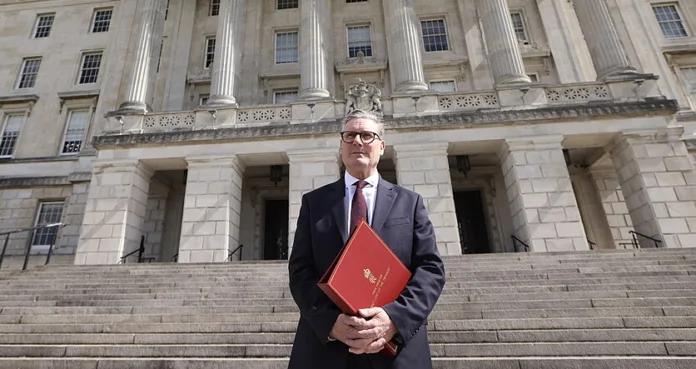Less than 100 days into his premiership, Starmer’s team overhaul aims to regain control amid growing discontent
Keir Starmer’s administration is already facing significant turbulence, prompting a substantial reshuffle just months after he took office. Entering Downing Street in July with the wind at his back, Starmer celebrated Labour’s largest election victory since 1997. However, that initial momentum has quickly evaporated, revealing fissures in his leadership as controversies mount.
In a bid to assert control over his struggling government, Starmer announced the departure of Sue Gray, his chief of staff, and unveiled a reshuffling of key advisers. Gray, who played a vital role in his rise to power and previously led the investigation into the “partygate” scandal, found herself at the centre of controversy. Although a seasoned civil servant, her management style reportedly led to dissatisfaction among colleagues and a culture of frustration within the ranks.
Reports surfaced of political allies being favoured for civil service roles, alongside allegations of Starmer and other ministers accepting hospitality from donors. This atmosphere of unease reached a boiling point, prompting rival factions to leak damaging information about Gray, including claims that her salary exceeded that of the Prime Minister.
Embed from Getty ImagesUltimately, the speculation surrounding Gray’s future culminated in her transition to a new role as “envoy to the nations and regions,” a position perceived as a consolation prize rather than a promotion. This move, while necessary for Starmer to distance himself from an increasingly problematic figure, exposes him to greater scrutiny and uncertainty early in his premiership.
One anonymous senior Whitehall official reflected on the current situation: “Above all, they still need to work out what this government actually wants for the country.” Such comments underscore the lack of clarity in Starmer’s agenda as he seeks to consolidate power.
Starmer has now entrusted his election strategist, Morgan McSweeney, with the role of chief of staff. McSweeney, known for his strong relationship with the Prime Minister, has earned respect for his instrumental role in shaping Labour’s successful campaign strategy. However, reports suggest that tensions between him and Gray had escalated in the lead-up to this leadership reset.
Some colleagues described Gray as seeking tight control over decision-making within Downing Street, creating obstacles for McSweeney’s ambitions. While allies of Gray have denied these claims, asserting that she maintained regular communication with him, the perception of a fractured team remains.
Starmer has further strengthened his inner circle by appointing James Lyons, a seasoned political journalist, as the new communications chief. Lyons is expected to lead strategic communications for Downing Street, a move that many Labour insiders view as an indication of Starmer’s commitment to running a more cohesive operation.
Labour peer Stewart Wood welcomed the appointments, recognising the need for a “political spine” within the leadership team that was lacking in the initial months. His sentiments were echoed by a new Labour MP, who described the reshuffle as a “positive” step forward for the government, marking a decisive shift from a previously stagnant period.
McSweeney’s strong ties with MPs, forged during the recent election campaign, have positioned him as a trusted figure capable of delivering quick wins in his new role. Supporters anticipate he will address contentious issues like pay for special advisers, which had become a sticking point under Gray’s leadership.
As speculation builds regarding the appointment of a new head of the civil service, following the confirmed departure of Cabinet Secretary Simon Case, the pressure mounts on Starmer to solidify his government’s footing.
While the reshuffle reflects a clear recognition of the challenges ahead, the question remains whether these changes can help Starmer navigate the political storm and deliver a cohesive vision for Labour’s future. The next few months will be crucial in determining whether this new direction can translate into sustained support for his administration or if it will further expose the vulnerabilities within his leadership.
